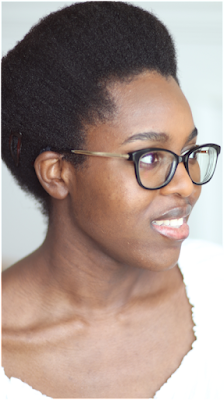Joseph Libonati interview
AUTHOR INTERVIEW
A little introduction:
Hello, and thank you for the opportunity to
be part of your blog!
Well, I'll start with this introduction. I hold my Ph.D. and have published numerous manuscripts/book chapters in the discipline of cardiovascular physiology. Around 2014, I started looking for 'personal truths' beyond the realm of pure facts/figures (maybe a second mid-life crisis 🙂, but who knows). Given I had been an avid reader for most of my adult life, I took a stab at writing my own fiction. That's when I started my debut novel - His Name Was Ellis (to be released February 26, 2022; Atmosphere Press). I wanted the undertones of the book to be philosophic in nature (I was very into Hermann Hesse at the time), so I tried to incorporate Buddhist philosophy, existentialism, and Freudian elements of the psyche into my 250 pages. I don't know if I accomplished this, but my characters were/are intended to be symbolic of the Id, Ego, and Superego.
I think different readers will walk away with their own thematic messages though, as His Name Was Ellis could easily be read at face value (a psychologically vulnerable, but lovable artist undergoing psychotherapy).
When did your love of books begin?
I would say I really started to love reading around 2000 - that’s
when I grew a true passion for it (right after my first mid-life crisis). I
usually read classics. Occasionally, I will read philosophy or religious texts,
although they slow me down. I also read many scientific articles. I do
appreciate poetry as well.
How have you found the process for becoming an author?
Compared to scientific writing, I find authoring fiction to be a
very different experience. While both styles require strong narratives, I find
scientific writing an easier lift. In that style, the narrative or discussion
section of the paper is based on experimental data. We describe how the data
fits into the whole of the problem and try to place our findings into context
through referencing other published works. Each scientific paper just adds
another small piece to the bigger puzzle. It’s a continuum of work. Scientific
writing is also often performed in a team setting, where figures, graphs, and
photos are typically used to present thoughts.
Fiction, on the other hand, is raw. There are no images to lean on. There are no tangible data to reference. It’s usually not a team effort. It’s just the author and their story – undressed. There are so many great works of fiction - so many incredibly talented authors – it’s intimidating to enter that marketplace. But that’s what authors of fiction do, they bravely put their thoughts out there to be tasted, chewed on, and digested. Then there is the judgement part – will the readers ever want to sit at your table again? The relationship between the reader and author is clearly an intimate one.
What do you love about the writing/reading community?
As a whole, I find the writing community (on social media) to be
thoughtful and wonderfully supportive. Authors understand the struggles other
writers are experiencing. They understand the constant stream of rejections,
the poor reviews, the lack of interest in the work. I find great humanity in
the writing community. I also find great wisdom there. I appreciate the artists
as much as the art.
If you could say anything to your readers what would it be?
The only thing I want to say to potential readers of His Name
Was Ellis, is that I hope the story sparks some enjoyment and thought.
Remember, its existential - the slipper never really makes to the princess’s
foot.
Where can people connect with you?
Joseph Libonati Author Page United
States (wixsite.com)
Twitter: @JosephLibonati

.jpg)

Comments
Post a Comment